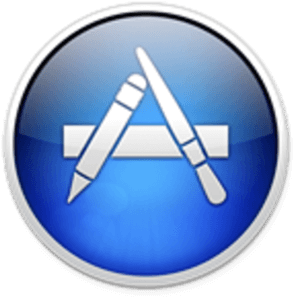Yesterday, at Apple’s “Back to the Mac” press event, the company announced an App Store for the Mac, similar to the stores it already runs for the iPhone, iPod Touch and iPad within iTunes. There’s no doubt a computer-based “app store” is an interesting concept, and it will likely attract developers because of the exposure it provides, not to mention the hassles it eliminates – like dealing with credit card processing, or paying for hosting and bandwidth bills.

As with the iTunes App Store, developers receive the standard 70/30 (developer/Apple) revenue split on app sales. Also like the iTunes App Store, Apple has created a long list of apps it plans to reject.
Thanks to an anonymous person, the entire contents of Apple’s Developer Agreement have been posted to the website pastie.org, a site which functions as sort of a Web-based clipboard for sharing notes.

The list of apps Apple won’t allow in its Mac App Store is long. Some of the reasons are relatively standard – for example, apps that cause damage to the device, utilize Apple trademarks, apps that don’t work, etc. won’t be allowed.
However, some of the Mac Store guidelines are less about consumer protection, and more about Apple’s own version what it wants, as a company, to promote. Some call this “censorship,” some call it “curation.” Regardless of your position on the matter, it’s clear the Mac App Store will abide by similar rules as the iTunes store. In fact, in reviewing the document, it looks like Apple cut-and-pasted quite a bit of the iTunes App Store Guidelines into the the new document.
Here are some standout, and perhaps questionable, examples of what Apple will reject from its Mac App Store:
- Apps with “Easter Eggs:” Apps that include undocumented or hidden features inconsistent with the description of the app will be rejected.
- No beta apps: Apps in “beta,” “trial” or “test” versions will be rejected.
- No duplicate apps: Apps that duplicate apps already in the App Store may be rejected, particularly if there are many of them.
- No drinking/drugs: Apps that encourage excessive consumption of alcohol or illegal substances will be rejected.
- No License Keys: Apps that require the entry of a license key will be rejected.
- No Java?: Apps that use deprecated or optionally installed technologies (e.g. Java, Rosetta) will be rejected.
- No auto-run: Apps that are set to auto-launch or have other code automatically run at startup or login without user consent will be rejected. Similarly, apps can’t automatically add their icons to the dock or desktop.
- No copying Apple!: Apps that look similar to Apple Products or apps bundled on the Mac, including the Finder, iChat, iTunes and Dashboard, will be rejected.
- OS X may not be changed: Apps that change the native user interface elements or behaviors of Mac OS X will be rejected.
- No rentals: Apps containing “rental” content and services that expire after a limited time will be rejected.
- No RSS Readers?: Apps that are simply Web clippings, content aggregators, or a collection of links may be rejected.
- No data collection: Apps cannot transmit data about a user without obtaining the user’s prior permission and providing the user with access to information about how and where the data will be used.
- No Chatroulette clones?: Apps that include games of Russian roulette will be rejected.
- Define “objectionable:” Apps that present excessively objectionable or crude content will be rejected.
- No porn: Of any kind. (Porn as it’s defined by “Webster’s Dictionary,” that is).
- No gambling: Of any kind.
- No file-sharing: No P2P apps – apps that enable illegal file sharing will be rejected.
- Religious apps must be for educational purposes only: Apps may contain or quote religious text provided the quotes or translations are accurate and not misleading. Commentary should be educational or informative rather than inflammatory.
App Store Review Guidelines
Introduction
The App Store has revolutionized the way mobile apps are developed and distributed. With over 300,000 apps and 7 billion downloads, it has been a huge hit with developers and users around the world. Now we are thrilled to be opening our new Mac App Store to the hundreds of thousands of Mac developers and tens of millions of Mac users around the world.
We hope the new Mac App Store is the most exciting place for users to discover and purchase their apps. To ensure that apps are reliable, perform as advertised, and free of offensive material, we will review every app on the Mac App Store based on a set of Mac App Store Review Guidelines that we are ready to share with you. These guidelines are designed to help you create and prepare your apps so they will sail through our approval process.
We want to help you reach tens of millions of Mac customers with your apps. As with the mobile App Store, developers will earn 70% of the revenues. Please join us as we launch our Mac App Store within the next 90 days, and together we can surprise and delight our joint customers.
Table of Contents
Terms and conditions
Functionality
Metadata, ratings and rankings
Location
Trademarks and trade dress
User interface
Purchasing and currencies
Scraping and aggregation
Damage to device
Personal attacks
Violence
Objectionable content
Privacy
Pornography
Religion, culture, and ethnicity
Contests, sweepstakes, lotteries, and raffles
Charities and contributions
Legal requirements
1. Terms and conditions
1.1
As a developer of applications for the Mac App Store you are bound by the terms of the Program License Agreement (PLA), Human Interface Guidelines (HIG), and any other licenses or contracts between you and Apple. The following rules and examples are intended to assist you in gaining acceptance for your app in the App Store, not to amend or remove provisions from any other agreement.
2. Functionality
2.1
Apps that crash will be rejected
2.2
Apps that exhibit bugs will be rejected
2.3
Apps that do not perform as advertised by the developer will be rejected
2.4
Apps that include undocumented or hidden features inconsistent with the description of the app will be rejected
2.5
Apps that use non-public APIs will be rejected
2.6
Apps that are “beta”, “demo”, “trial”, or “test” versions will be rejected
2.7
Apps that duplicate apps already in the App Store may be rejected, particularly if there are many of them
2.8
Apps that are not very useful or do not provide any lasting entertainment value may be rejected
2.9
Apps that are primarily marketing materials or advertisements will be rejected
2.10
Apps that are intended to provide trick or fake functionality that are not clearly marked as such will be rejected
2.11
Apps that encourage excessive consumption of alcohol or illegal substances, or encourage minors to consume alcohol or smoke cigarettes, will be rejected
2.12
Apps that provide incorrect diagnostic or other inaccurate device data will be rejected
2.13
Developers “spamming” the App Store with many versions of similar apps will be removed from the Mac Developer Program
2.14
Apps must be packaged and submitted using Apple’s packaging technologies included in Xcode – no third party installers allowed
2.15
Apps must be self-contained, single application installation bundles, and cannot install code or resources in shared locations
2.16
Apps that download or install additional code or resources to add functionality or change their primary purpose will be rejected
2.17
Apps that download other standalone apps will be rejected
2.18
Apps that install kexts will be rejected
2.19
Apps that require license keys or implement their own copy protection will be rejected
2.20
Apps that present a license screen at launch will be rejected
2.21
Apps may not use update mechanisms outside of the App Store
2.22
Apps must contain all language support in a single app bundle (single binary multiple language)
2.23
Apps that spawn processes that continue to run after a user has quit the app without user consent will be rejected
2.24
Apps that use deprecated or optionally installed technologies (e.g., Java, Rosetta) will be rejected
2.25
Apps that do not run on the currently shipping OS will be rejected
2.26
Apps that are set to auto-launch or to have other code automatically run at startup or login without user consent will be rejected
2.27
Apps that request escalation to root privileges or use setuid attributes will be rejected
2.28
Apps that add their icons to the Dock or leave short cuts on the user desktop will be rejected
2.29
Apps that do not use the appropriate Mac OS X APIs for modifying user data stored by other apps (e.g bookmarks, Address Book or Calendar entries) will be rejected
2.30
Apps that do not comply with the Mac OS X File System documentation will be rejected
3. Metadata (name, descriptions, ratings, rankings, etc)
3.1
Apps with metadata that mentions the name of any other computer platform will be rejected
3.2
Apps with placeholder text will be rejected
3.3
Apps with descriptions not relevant to the application content and functionality will be rejected
3.4
App names in iTunes Connect and as displayed on Mac OS X should be the same, so as not to cause confusion
3.5
All app icons should be similar, so as to not to cause confusion
3.6
Apps with app icons and screenshots that do not adhere to the 4+ age rating will be rejected
3.7
Apps with Category and Genre selections that are not appropriate for the app content will be rejected
3.8
Developers are responsible for assigning appropriate ratings to their apps. Inappropriate ratings may be changed by Apple
3.9
Developers are responsible for assigning appropriate keywords for their apps. Inappropriate keywords may be changed/deleted by Apple.
3.10
Developers who attempt to manipulate or cheat the user reviews or chart ranking in the App Store with fake or paid reviews, or any other inappropriate methods will be removed from the Mac Developer Program
4. Location
4.1
Apps that do not notify and obtain user consent before collecting, transmitting, or using location data will be rejected
4.2
Apps that use location-based APIs for automatic or autonomous control of vehicles, aircraft, or other devices will be rejected
4.3
Apps that use location-based APIs for dispatch, fleet management, or emergency services will be rejected
5. Trademarks and trade dress
5.1
Apps must comply with all terms and conditions explained in the Guidelines for using Apple Trademark and Copyrights and the Apple Trademark List
5.2
Apps that suggest or infer that Apple is a source or supplier of the app, or that Apple endorses any particular representation regarding quality or functionality will be rejected
5.3
Apps which appear confusingly similar to an existing Apple product or advertising theme will be rejected
5.4
Apps that misspell Apple product names in their app name (i.e., GPS for Imac, iTunz) will be rejected
5.5
Use of protected 3rd party material (trademarks, copyrights, trade secrets, otherwise proprietary content) requires a documented rights check which must be provided upon request
6. User interface
6.1
Apps must comply with all terms and conditions explained in the Apple Macintosh Human Interface Guidelines
6.2
Apps that look similar to Apple Products or apps bundled on the Mac, including the Finder, iChat, iTunes, and Dashboard, will be rejected
6.3
Apps that do not use system provided items, such as buttons and icons, correctly and as described in the Apple Macintosh Human Interface Guidelines will be rejected
6.4
Apple and our customers place a high value on simple, refined, creative, well thought through interfaces. They take more work but are worth it. Apple sets a high bar. If your user interface is complex or less than very good it may be rejected
6.5
Apps that change the native user interface elements or behaviors of Mac OS X will be rejected
7. Purchasing and currencies
7.1
Apps that unlock or enable additional features or functionality with mechanisms other than the App Store will be rejected, except in cases where the application hosts plug-ins or extensions
7.2
Apps that create a store inside themselves for selling or distributing other software (i.e., an audio plug-in store in an audio app) will be rejected.
7.3
Apps that allow the user to purchase access to built-in capabilities provided by Mac OS X, such as an iSight camera, will be rejected
7.4
Apps containing “rental” content or services that expire after a limited time will be rejected
7.5
Insurance applications must be free and in legal-compliance in the regions distributed
7.6
In general, the more expensive your app, the more thoroughly we will review it
8. Scraping and aggregation
8.1
Applications that scrape any information from Apple sites (for example from apple.com, iTunes Store, App Store, iTunes Connect, Apple Developer Programs, etc) or create rankings using content from Apple sites and services will be rejected
8.2
Applications may use approved Apple RSS feeds such as the iTunes Store RSS feed
8.3
Apps that are simply web clippings, content aggregators, or a collection of links, may be rejected
9. Damage to Products
9.1
Apps that encourage users to use an Apple product in a way that may cause damage to the device will be rejected
9.2
Apps that rapidly drain a products battery or generate excessive heat will be rejected
10. Personal attacks
10.1
Any app that is defamatory, offensive, mean-spirited, or likely to place the targeted individual or group in harms way will be rejected
10.2
Professional political satirists and humorists are exempt from the ban on offensive or mean-spirited commentary
11. Violence
11.1
Apps portraying realistic images of people or animals being killed or maimed, shot, stabbed, tortured or injured will be rejected
11.2
Apps that depict violence or abuse of children will be rejected
11.3
“Enemies” within the context of a game cannot solely target a specific race, culture, a real government or corporation, or any other real entity
11.4
Apps involving realistic depictions of weapons in such a way as to encourage illegal or reckless use of such weapons will be rejected
11.5
Apps that include games of Russian roulette will be rejected
12. Objectionable content
12.1
Apps that present excessively objectionable or crude content will be rejected
12.2
Apps that are primarily designed to upset or disgust users will be rejected
13. Privacy
13.1
Apps cannot transmit data about a user without obtaining the user’s prior permission and providing the user with access to information about how and where the data will be used
13.2
Apps that require users to share personal information, such as email address and date of birth, in order to function will be rejected
13.3
Apps that target minors for data collection will be rejected
14. Pornography
14.1
Apps containing pornographic material, defined by Webster’s Dictionary as “explicit descriptions or displays of sexual organs or activities intended to stimulate erotic rather than aesthetic or emotional feelings”, will be rejected
14.2
Apps that contain user generated content that is frequently pornographic (ex “Chat Roulette” apps) will be rejected
15. Religion, culture, and ethnicity
15.1
Apps containing references or commentary about a religious, cultural or ethnic group that are defamatory, offensive, mean-spirited or likely to expose the targeted group to harm or violence will be rejected
15.2
Apps may contain or quote religious text provided the quotes or translations are accurate and not misleading. Commentary should be educational or informative rather than inflammatory
16. Contests, sweepstakes, lotteries, and raffles
16.1
Sweepstakes and contests must be sponsored by the developer/company of the app
16.2
Official rules for sweepstakes and contests must be presented in the app and make it clear that Apple is not a sponsor or involved in the activity in any manner
16.3
It must be permissible by law for the developer to run a lottery app, and a lottery app must have all of the following characteristics: consideration, chance, and a prize
16.4
Apps that allow a user to directly purchase a lottery or raffle ticket in the app will be rejected
17. Charities and contributions
17.1
Apps that include the ability to make donations to recognized charitable organizations must be free
17.2
The collection of donations must be done via a web site in a web browser
18. Legal requirements
18.1
Apps must comply with all legal requirements in any location where they are made available to users. It is the developer’s obligation to understand and conform to all local laws
18.2
Apps that contain false, fraudulent or misleading representations will be rejected
18.3
Apps that solicit, promote, or encourage criminal or clearly reckless behavior will be rejected
18.4
Apps that enable illegal file sharing will be rejected
18.5
Apps that are designed for use as illegal gambling aids will be rejected
18.6
Apps that enable anonymous or prank phone calls or SMS/MMS messaging will be rejected
18.7
Developers who create apps that surreptitiously attempt to discover user passwords or other private user data will be removed from the Mac Developer Program
Living document
This document represents our best efforts to share how we review apps submitted to the Mac App Store, and we hope it is a helpful guide as you develop and submit your apps. It is a living document that will evolve as we are presented with new apps and situations, and we’ll update it periodically to reflect these changes.
Thank you for developing for Mac OS X. Even though this document is a formidable list of what not to do, please also keep in mind the much shorter list of what you must do. Above all else, join us in trying to surprise and delight users. Show them their world in innovative ways, and let them interact with it like never before. In our experience, users really respond to polish, both in functionality and user interface. Go the extra mile. Give them more than they expect. And take them places where they have never been before. We are ready to help.







